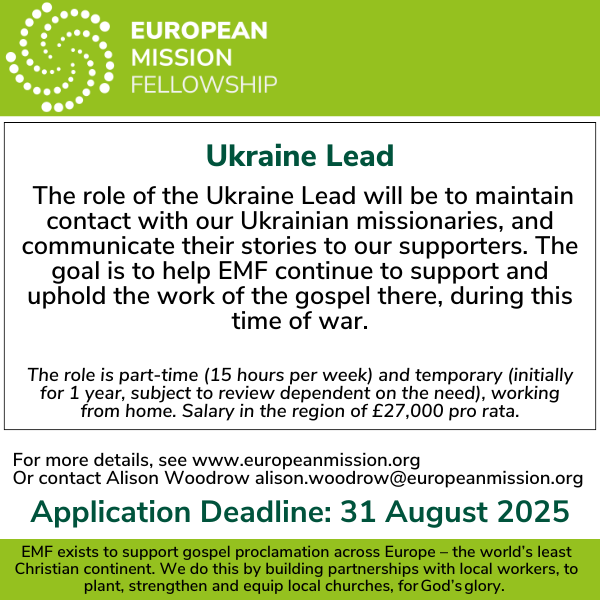Ethnic minorities often make headlines in the secular press but not often enough in Christian circles. However, our concern for such people-groups is an indication of how seriously we take the last instructions of the one we call Lord.
Jesus told his disciples to go to the ethnos and make disciples of them — all of them. Each ethnic group is important to God. It was the Lord who brought about different language groups in the first place; and it is he who has set us this goal.
To make disciples we must use the Bible — God’s own witness to Jesus Christ. Bible translation is thus an essential part of Christian outreach.
Imagine
What is it like to translate the Bible for a previously unreached ethnic group? Imagine walking into an isolated jungle village, several days hike from the nearest airstrip. Now try to imagine not being able to communicate with the people who gather around you.
What happens next? Handshakes and smiles go a long way towards easing tension, but the language barrier is very real. It will probably take years of study to achieve fully comprehensible spoken communication, especially if the language has not previously been written.
Even when conversation becomes possible, the problem of reliable communication remains, for our words reflect the way we think about the world around us. How does an isolated jungle dweller react to the word ‘food’, for example? His food has always been what he could find or catch, but doesn’t the white man get his food from tins?
It is going to be challenging translating: ‘Jesus said “I am the bread of life”.’ (What is ‘bread’, anyway?!)
Wisdom
Ideas familiar to us may never have crossed the minds of this ethnic group. They may never have shown mercy or been gracious to enemies; they have no specific words for those concepts. This calls for ingenuity from the translator — or rather wisdom from the one who sent us to tackle this job.
So ‘grace’ might be translated as some form of, ‘only because of his good heart’; ‘mercy’ may be based on the expression, ‘not repaying our bad ways’; ‘righteousness’ involves being ‘people of straight ways’; and so on.
Some words baffle the translator. What do you do with terms like ‘love’ or ‘holy’? How do you translate fractions — ‘tithes’ for example — where the only words for numbers are ‘one’, ‘two’ and ‘the single one’? But God gives more grace, and the translator presses on.
The translation process is demanding. Having studied what a Bible passage originally meant, the translator must decide how to re-express the same meaning in the local language. Working with a helper who grew up speaking the language, the translator tries different ways of capturing the meaning, impact and flow as accurately and naturally as possible.
Check and recheck
He must then find out what his hearers understand when they hear the translated passage read to them. Did they get the point? All of it?
Has the translator achieved his goal? Testing the work is essential and complicated. Ideally, a consultant is called in to do an objective comprehension check of each verse. Check and recheck; then, just to be sure, check again.
When a translation is finally ready for distribution the rewards are worth all the effort and frustration. ‘God’s word is sweet!’, ‘We feel like we have been fed a good meal’, ‘Now we understand!’, are some of the satisfying comments.
To let God’s Word loose is to have a tremendous effect on people. God’s Word is alive and powerful and can achieve things we never dreamed of. To translate and use it to make disciples is probably one of the most worthwhile jobs in the world.
After all, it is the job that Jesus gave his church. It may be technical and it has to be ‘ethnical’, but it will always be rewarding to see Jesus glorified.
This kind of job is far from finished, yet it doesn’t seem to rank in the ‘top ten’ occupations of the Christian world. Missionary work is somehow marginalised — something that somebody else is supposed to do. But who might that somebody be? Might it be you?






